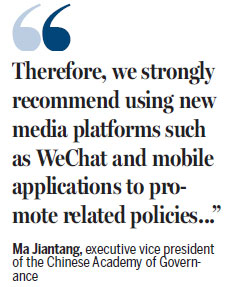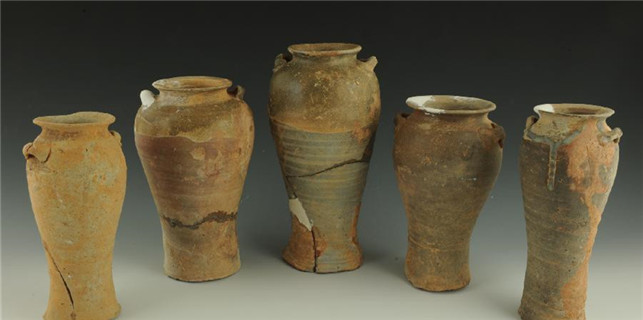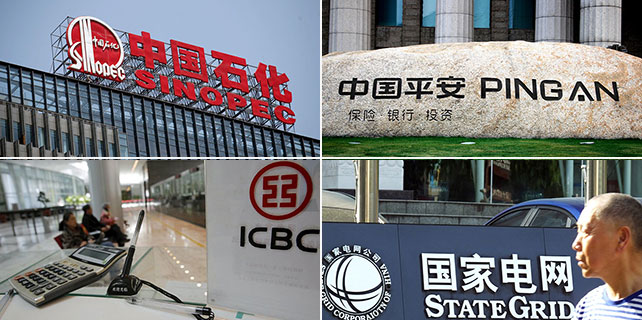Investment and innovation efforts pay off as improvements continue
Report shows costs still a burden even as growth given massive boost
Recent measures in boosting private investment as well as encouraging mass entrepreneurship and innovation have shown a significant effect, and improvements are being made, according to a State Council news release.
The findings of a nationwide third-party evaluation on the implementation of key policies to encourage private investment as well as promoting mass entrepreneurship and innovation were unveiled at the State Council's executive meeting on Sept 13, chaired by Premier Li Keqiang.
Evaluation results show that these policies were significant in sustaining economic growth and upgrading, contributing greatly to nurturing new economic drivers and creating jobs.

Ma Jiantang, executive vice president of the Chinese Academy of Governance, said during a news briefing on Friday regarding the evaluation that this year's assessment covered 31 provinces and regions across China, and the assessment team visited five provinces and cities as well as more than 300 enterprises. The academy also participated in the evaluation in 2016.
The evaluation results show that private business had become a key part of the economy, and the private sector now accounts for more than 80 percent of the employment, contributing over 60 percent of GDP, and had contributed more than half of the taxation returns, Ma pointed out.
Results of the evaluation show that 64.1 percent of companies were satisfied with policies that helped widen market access for private investors, while 62.5 percent were happy with government efforts that brought greater efficiency to the private investment process, he said.
Private fixed-asset investment reached 23.9 trillion yuan ($3.65 trillion), a 6.4 percent increase compared with the same period last year.
"Major problems highlighted in the evaluation are largely the same over the past two years, but there is an obvious trend showing that things are improving," Ma said.
For example, the value-added tax reform has been promoted across the country since May 2016 and has helped companies to cut tax by a total of 570 billion yuan.
"A lot of companies surveyed still complain about the high cost of financing, especially for small-and-medium sized companies," Ma said. "And the problem of institutional costs for businesses still exist in many areas, which is similar to what we noticed last year."
The academy suggested to the State Council that it is important to enhance research and hear suggestions during the policy making process. It also strongly suggested enhancing efforts in informing stakeholders, such as enterprises, about policies.
"For example, during the evaluation, we noticed that though the State Council has come out with a slew of incentives in encouraging private investment, some businesspeople say that they are not even aware of it," Ma said. "Therefore, we strongly recommend using new media platforms such as WeChat and mobile applications to promote related policies, and keep the private business people informed about related policies once they came out."
He pointed out that one significant move compared with last year's evaluation is that many businesses are happy as hurdles toward market access have been greatly reduced, especially in areas of electricity, petroleum, railway, civil aviation and telecommunications. At the same time, more private funds are entering areas of medical treatment as well as endowments.
On mass entrepreneurship and innovation, the evaluation covering eight provinces and cities, 17 demonstration areas and 95 enterprises shows that nearly 85 percent of them believed entrepreneurship-and innovation-related policies have created new economic driving forces, while some 81 percent believed the policies helped create more jobs, according to Huang Rong, vice-chair of the All China Federation of Industry and Commerce, who participated in carrying out the evaluation.
It was decided at the Sept 13 State Council meeting that the government will come out with comprehensive policies that fit market development, while strengthening policy support and coordinating different policies to minimize obscure areas in implementation.
Mo Yuchuan, a professor from the China University of Political Science and Law, said the third party evaluation system is an important measure in improving supervision and enhancing policy effectiveness.
The premier proposed when delivering the Government Work Report in 2015 that China build a service-oriented government.
Mo said the third-party assessment, as an innovative move by the government, was done as part of this.
"Third-party evaluation on national key policies became systematic in China only in recent years, and it now plays a positive role in improving public policy," Mo said.
He said the move is the sign that China's policy making process is growing more precise and effective.
"At the same time, it is also important for government to pick evaluation conductors to make sure that the evaluation is as mature as possible," he added.

















